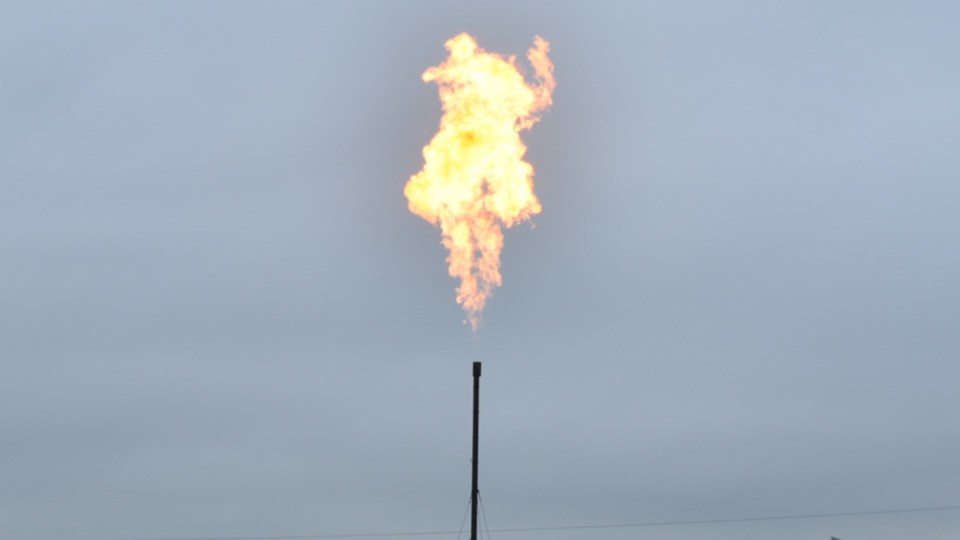YORKTON — The provincial government says it estimates the proposed federal upstream oil and gas emissions cap and new methane will cost $7-9 billion in compliance costs.
The changes, which are now under the province’s Economic Assessment Tribunal’s review, “are unnecessary, costly and create uncertainty for investors and operators... creating significant negative impacts directly on oil and gas producers resulting in potential job losses,” a spokesperson with the provincial Ministry of Energy and Resources wrote in an email.
With no consideration taken into Saskatchewan’s unique geology and economics of operating, the cap will “shut-in” the province’s oil and gas production, impacting the revenues it generates that help fund hospitals, schools, roads and other critical services, says the ministry.
“The framework also fails to outline how emissions allowances will be calculated and allocated, which makes it extremely challenging to estimate the price of traded emissions and impact of the cap,” said the press release on April 8.
The government has 60 days to release the Tribunal’s report – due on Sept. 3, 2024 – to the public.
“Their [the federal government’s] imposition, with no consultation, is another example of gross federal overreach into provincial jurisdiction and flies in the face of growing momentum against federal regulation of specific provincial industries by the courts,” said Justice Minister and Attorney General Bronwyn Eyre in the press release. “It is also our position that a cap-and-trade system does not fit under the federal criminal law power.”
The federal response
“Saskatchewan has an equivalency agreement with the federal government for existing federal regulations and can decide to pursue a similar arrangement for the proposed regulations, which, if approved by Governor in Council, would have federal regulations stand down in the province,” wrote a spokesperson with Environment and Climate Change Canada (ECCC) in an email in response.
“As the country’s largest source of greenhouse gas emissions and the only major source that continues to grow, decarbonizing the oil and gas sector is critical to achieving Canada’s emission reduction targets.
“The sector is also an economic powerhouse, proven innovator and source of good paying jobs.”
Environment Canada says the reduction of methane emissions is among the lowest cost ways to reduce greenhouse gas emissions.
According to the regulatory impact assessment statement prepared for the draft version of the regulations, the proposed regulations will have a cost of about $70/tonne of CO2 equivalent reductions, wrote the federal government’s spokesperson in an email.
The Government of Canada plans to finalize these regulations by the end of 2024.
“ECCC has conducted significant engagement with the major oil and gas-producing provinces including Saskatchewan on the amendment to the oil and gas methane regulations, and discussions are ongoing,” wrote the spokesperson.
‘Balance, pragmatism, and incentives required instead of punitive measures’
The existing made-in-Saskatchewan approach to methane has reduced reported emissions from upstream oil facility venting and flaring by 64 per cent below 2015 levels, including a 70 per cent reduction in methane emissions from those sources, the Ministry of Energy and Resources reported.
Tristan Goodman, president at the , a public policy advocacy organization that represents independent oil and gas companies globally, said in the press release that the changes are “unacceptable” given the success stories in the federal government’s own data.
Its further consequences, Goodman says, may include “constitutional challenges.”
“To ensure Canadian producers can continue to responsibly produce the affordable and reliable energy that Canada and the world needs, while continuing to advance clean technology projects, our sector must compete for investment,” he said.
“...this requires balance, pragmatism, and incentives instead of punitive measures that further damage Canada's reputation as a place where projects are far too expensive, goalposts are uncertain, and environmental performance is not recognized.”
Canada as part of global effort in reducing methane emissions
These regulations are part of Government of Canada’s broader and aligns with the Government of Canada’s support for the , where signatories committed to a collective effort to reduce methane emissions across economic sectors by at least 30 per cent below 2020 levels by 2030, wrote the spokesperson with Environment and Climate Change Canada
According to Environment Canada, the proposed changes are part of measures taken with the global movement decarbonizing the oil and gas sector:
- The United States government published in December 2023. This is in addition to the U.S. Congress’ imposition of a national methane fee.
- On May 27, the European Union released for its oil and gas sector.
- Other major oil and gas-producing countries including Brazil have announced their intent to implement regulations.
- At COP28 in Dubai, 50 of the world’s major oil and gas companies, including Saudi Aramaco, Shell, Totale, BP and Petrobas, publicly committed to achieve near zero methane emissions and zero routine flaring by 2030.
In compliance with the federal proposal, the initial estimate of the provincial risk assessment between $7 billion and $9 billion by 2030, the provincial Ministry of Energy and Resources says, does not include the broader economic impact on jobs, investment and GDP.
“Under the Saskatchewan First Act, findings by the independent Tribunal can be used as evidence in court. Panel members will review the economic impact of implementing the regulations, including the anticipated impact on investment, production, and royalty tax revenues, costs required to comply with the new federal regulations, and overall economic impact,” wrote the provincial ministry spokesperson.




